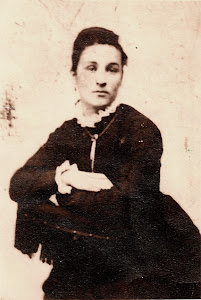
- “Main Squeeze” for either person in the couple. When a person outside the “union” is referring to one or either party in the union, it can be done as follows: “I now pronounce you mutual Main Squeezes. You can mack to your hearts’ content.” “That’s Persephone and ky(*) Main Squeeze, Juanderlust.” (*--see pronouns below) “Yes, now that you mention it, Brandi and Taquila are mutual main squeezes.”
- “Alpha Rent” for the parent-in-charge: the one whose voice really carries weight when it comes to punishment, etc. (Every kid knows this. The parents may not, but the kids do...) Obviously, the Alpha Rent can be male or female, or whatever gender with which they identify.
- “Beta Rent” is for the parent next in line. Then there are grand-rents, and great-grand rents, etc.
- “Rent-Sibling” for aunt or uncle.
A new pronoun will be introduced. It will replace the gendered third person pronouns: “he,” “she,” “him,” “her,” etc. It is based (loosely) on the pronoun developed in Ursula LeGuin’s “Left Hand of Darkness,” more so another sci-fi book that ripped her off in that regard (i.e., the gender neutral pronoun), and modeled on the existing English Language pronouns. It is: ke.
- Nominative Singular: ke (rhymes with “he” or “she”)
- Objective Singular: kerm
- Possessive Singular: ke’s (rhymes with “keys”)
- Reflexive Singular: keself (ke-self)
- Possessive Adjectives: ky (rhymes with “my”)
“The first grade child’s Alpha Rent, Wiki-wiki, was unable to come to the Parent-Teacher conference as ke was at the hospital. Ky sibling had been brought to the hospital earlier in the day, so ke was waiting there to hear news of ky health. So, the child’s Beta Rent, Mellifluous, came to the school. Unlike the parents of the other children in the class, ky rents were still married, so Mellifluous was Wiki-wiki’s Main squeeze, and vice-versa. Or in other words, they were mutual main squeezes.”
A committee would need to carefully review other possible consonant choices.
As for homecoming queens, well...
One person will be elected to serve as the Homecoming Dictatron. (Stealing from the restaurant industry who tried out “waitron” as an alternative to “waiter” or “waitress” before settling on the still-sexist “server.”) All students of any gender or gender-identity would be eligible for the title and the throne. That student can then appoint any number (because one would posit the idea that a ruling set consists of two people only, alienating those children from families that practice plural marriage) of Sheikstrons of Fun to co-rule with kerm over the Homecoming Festivities.





1 comment:
Welcome to the blogosphere--I've added you to my blogroll!
:-)
BHG
Post a Comment